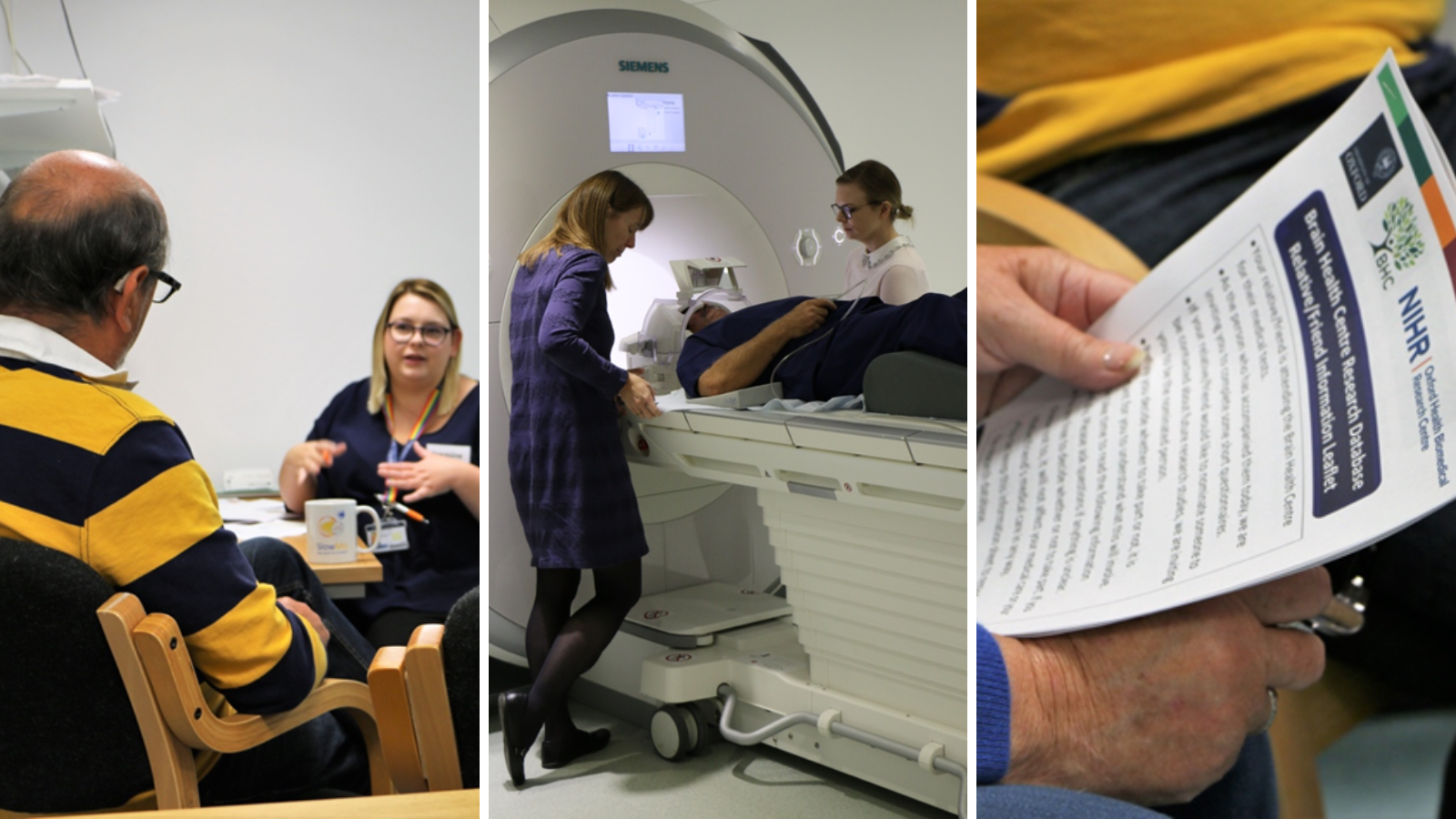
The Oxford Brain Heath Clinic is a new integrated research and clinical environment. Images © University of Oxford
The Oxford Brain Health Clinic bridges the widening gap between dementia research and NHS care by offering an advanced suite of high-quality assessments for patients at risk of, or with early signs of, dementia. By cleverly integrating teams of researchers with clinicians in a patient-friendly environment, the clinic can offer assessments not typically available to NHS patients.
Located in the Warneford Hospital and part of the NIHR Oxford Health Biomedical Research Centre, its goal is to prepare healthcare services so they are fit to tackle the challenges of preserving brain health in an ageing population.
Memory loss, language, problem-solving and other thinking abilities decline in later life and are caused by abnormal brain changes. Known collectively as dementia, these changes can impair daily life and affect behaviour and relationships. Thinking and memory problems can be improved with the right treatments, and new ways of preventing, diagnosing and managing dementia are emerging.
Oxford’s Brain Health Clinic was the first of several clinics set up to apply new ways of assessing brain health for people at the early stages of their dementia journey. With each clinic having a slightly different focus, the Oxford clinic sets itself apart by piloting better forms of dementia assessment for regular memory clinic patients, like MRI scans and neuropsychological assessment. It also offers every patient who walks through the door an opportunity to take part in research.
“Unlike similar clinics, we don’t go through patient databases looking for patients to invite in. Instead, we’ve embedded Oxford’s Brain Health Clinic into the standard clinical pathway, which means that if a patient is referred to a memory clinic by their GP, they come to us first for an advanced assessment,” explains Professor Clare Mackay, Associate Director of the Oxford Centre for Human Brain Activity at the University of Oxford, who led on the set-up of Oxford Brain Health Clinic in 2020.
“We package up a neat report for each patient’s clinical record so their doctor has all the information they need in one place. It’s an assessment centre model that’s quite common for other specialties, but it’s not usually done for dementia.”
Bridging the gap between research and clinical practice for dementia patients
While research is identifying new ways to assess brain health, these need to be pulled through into clinical practice so they can translate into real patient benefit. “There’s a widening gap, and so for patients with memory problems in later life, the Brain Health Clinic bridges that gap by giving them access to new forms of health assessment,” explains Professor Mackay.
“As a brain imaging scientist embedded into a clinic, my team’s research is now benefiting greatly from the steady flow of real patients coming in from Oxford Health NHS Foundation Trust. Our patients therefore represent a much broader cohort of people than you would expect to see in a typical clinical study.”
Each patient is offered a choice about how they might like to take part in research in a way that makes saying “yes” as easy as possible. More than 90% of patients say they are happy for their data to be used in research, over 80% agree to participate in additional assessments for research purposes while they are in the building, and over 70% sign up to be contacted about future research.
These extremely high rates of consent are a stark contrast to the national average of around 10% for dementia patients, proving that the model of integrating advanced health assessments in a streamlined NHS pathway can deliver a rich and continuous stream of patients for research.
Research partnerships and governance
The Brain Health Clinic’s research focuses on brain imaging, and includes the development of advanced decision-making tools for radiologists, in partnership with Oxford University Hospitals NHS Foundation Trust. The team have adapted the same brain imaging techniques that are used in the large UK Biobank study, giving them a huge population to compare patients against.
These local and national partnerships are core to the clinic’s research capability, enabling it to create a translational interface between University research and the NHS. For example, new research insights from the UK Biobank’s vast population-wide dataset means the team can rapidly apply what they learn about the brain to enhance the work of their memory clinic.
“Creating this translational interface from the ground up was not without its challenges,” says Professor Mackay. “When we set up the Brain Health Clinic we were faced with problems to solve around clinical governance, information governance and information security. Working between the University and the NHS means we have to meet all of their requirements, and we have to make sure we’re working in a way that isolates data so its kept safe. Streamlining how we access, manage and share data about our patients has actually been the hardest part of setting up our collaboration.”
While the Brian Health Clinic’s staff have joint University and NHS contracts, agreeing the legal and ethical framework for how they work took time and involved breaking new ground. “There was a great deal of enthusiasm and endorsement across the partners to make this work, with leadership across the NHS, NIHR BRC and the University all working towards the same goal. The fact that these organisations are bound to a commitment to work together really helps. So, now we essentially annex ourselves as part of the Clinical Research Facility and open to patients on a Tuesday morning – it works very well.”
The perfect setting
In the coming years, groundbreaking disease-modifying therapies for dementia are turning a corner and blood-based biomarkers are set to be incorporated into dementia diagnosis. With advanced brain health assessments and a steady flow of patients consenting to research, Oxford’s Brain Health Clinic has a crucial part to play in helping to identify the right patients for these new treatments and diagnostics.
Professor Mackay explains: “Before we can put new dementia treatments and diagnostics into standard clinical practice, we need to figure how they will actually be delivered. For a Brain Health Clinic like ours, this involves pointing our translational interface to evaluating these new tools in dementia patients and understanding how they can help improve clinical practice. Brain Health Clinics are the perfect setting for this.”
